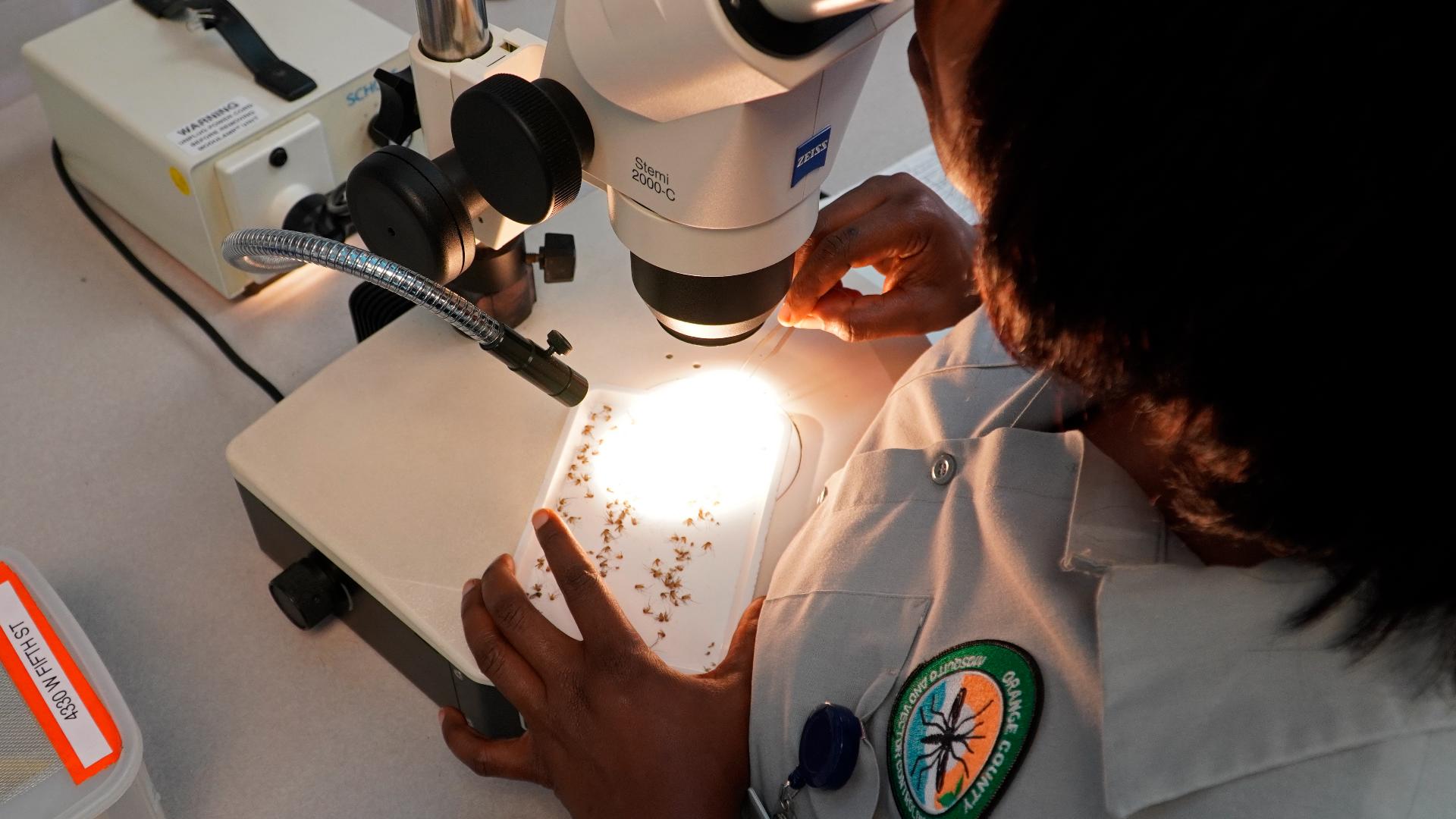AUSTIN, Texas — Mosquito-borne illnesses are on the rise, and health officials are doing their part to raise awareness and contain the spread.
West Nile and Eastern Equine Encephalitis, better known as EEE, are making rounds nationwide.
EEE is rare and considered the most severe mosquito-borne transmitted disease, according to the Centers for Disease Control and Prevention (CDC).
Two veterinary cases of EEE were recently confirmed in Houston. While none have been reported in Central Texas, Austin Public Health (APH) officials say there's always the possibility it can spread.
"You should always be on guard, always protect yourself, especially in Central Texas year-round," APH Environmental Health Officer Nicole Ramsey said. "As soon as we get a couple of warm days, they will hatch and go out looking for a blood meal."
APH reported 64 mosquito pools in Travis County have tested positive for the West Nile virus with two people catching the disease. Ramsey said they have done their part in those affected areas by going door-to-door to inform folks of the positive cases and informing them of prevention.
Larvicides are also used to prevent mosquitos from fully developing.
"Mosquito prevention is going to help combat all of these diseases," Ramsey said. "The less mosquitoes we have, the less disease we'll have circulating."
In Travis County, APH has reported four cases of Dengue fever in humans. In Texas, there have been 34 cases, including two deaths. Ramsey said there are no vaccines or treatments for the mosquito-borne illnesses, and the best case is prevention.
According to the CDC, the symptoms of EEE can be similar to the ones associated with West Nile. Those symptoms include fever, chills, body aches and joint pain. However, those who contract EEE rarely show symptoms. If they do, it may take up to four to 10 days for them to appear.
The CDC also noted it's also more rare for those symptoms to turn into neurological issues. But if they do, people with severe problems can die within 10 days of showing those problems.
There is no at-home test for EEE. The best course of action would be to talk to a doctor if someone believes they have the disease.

